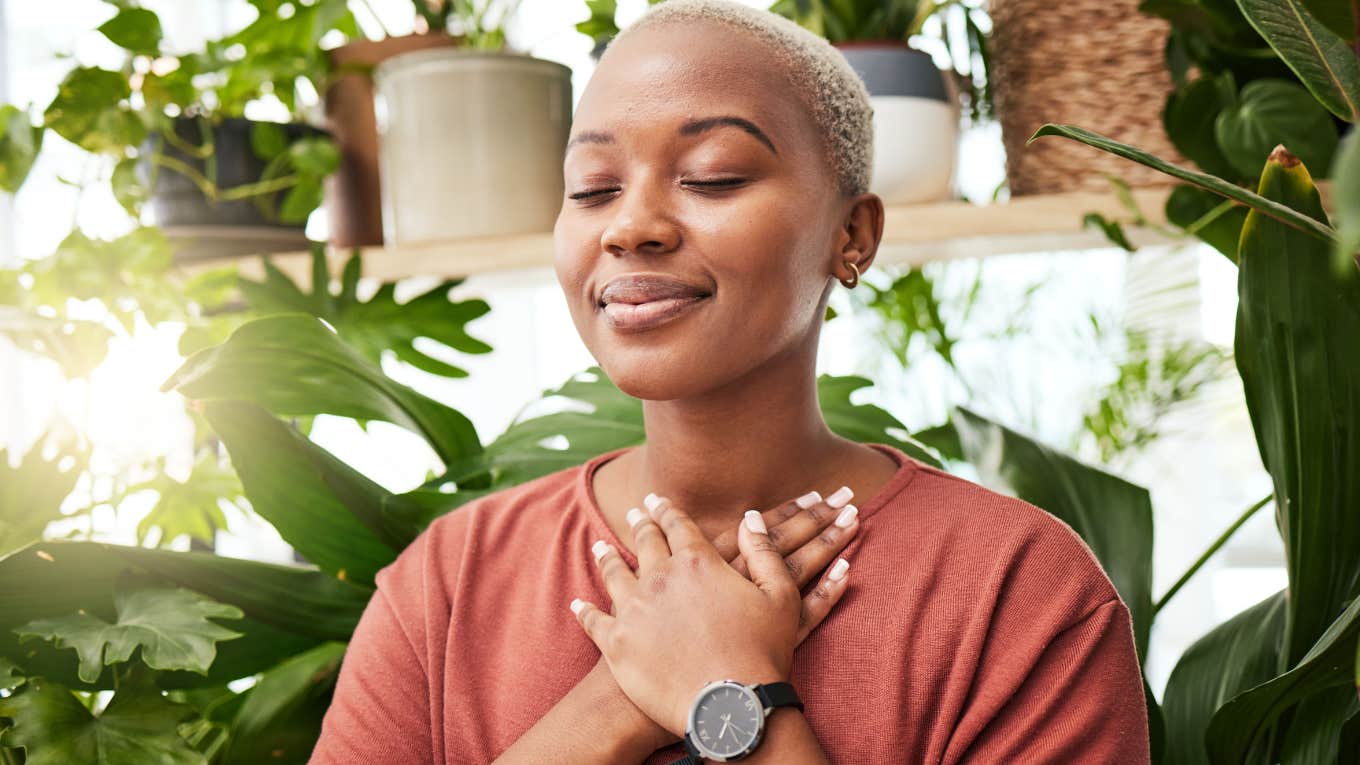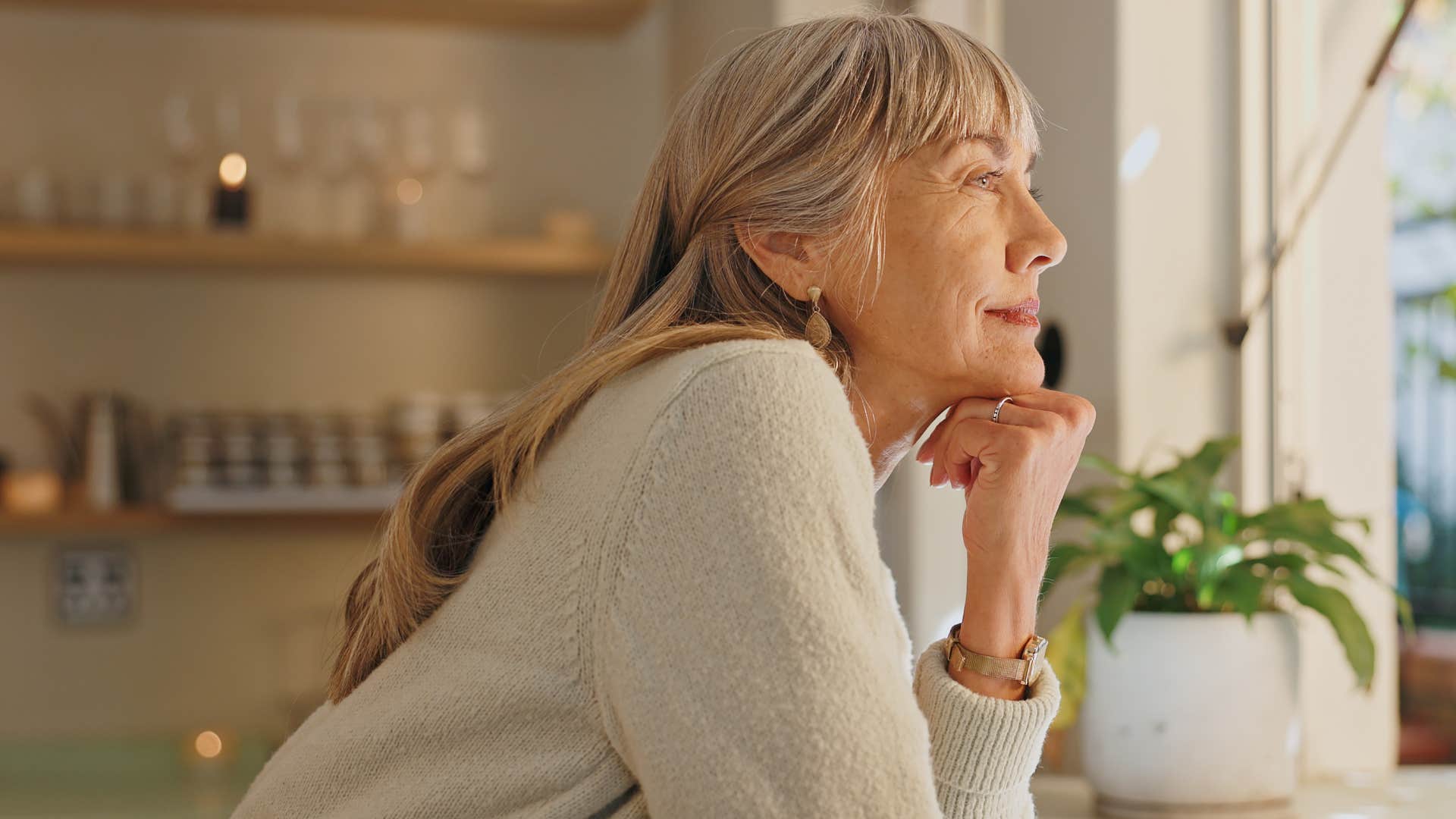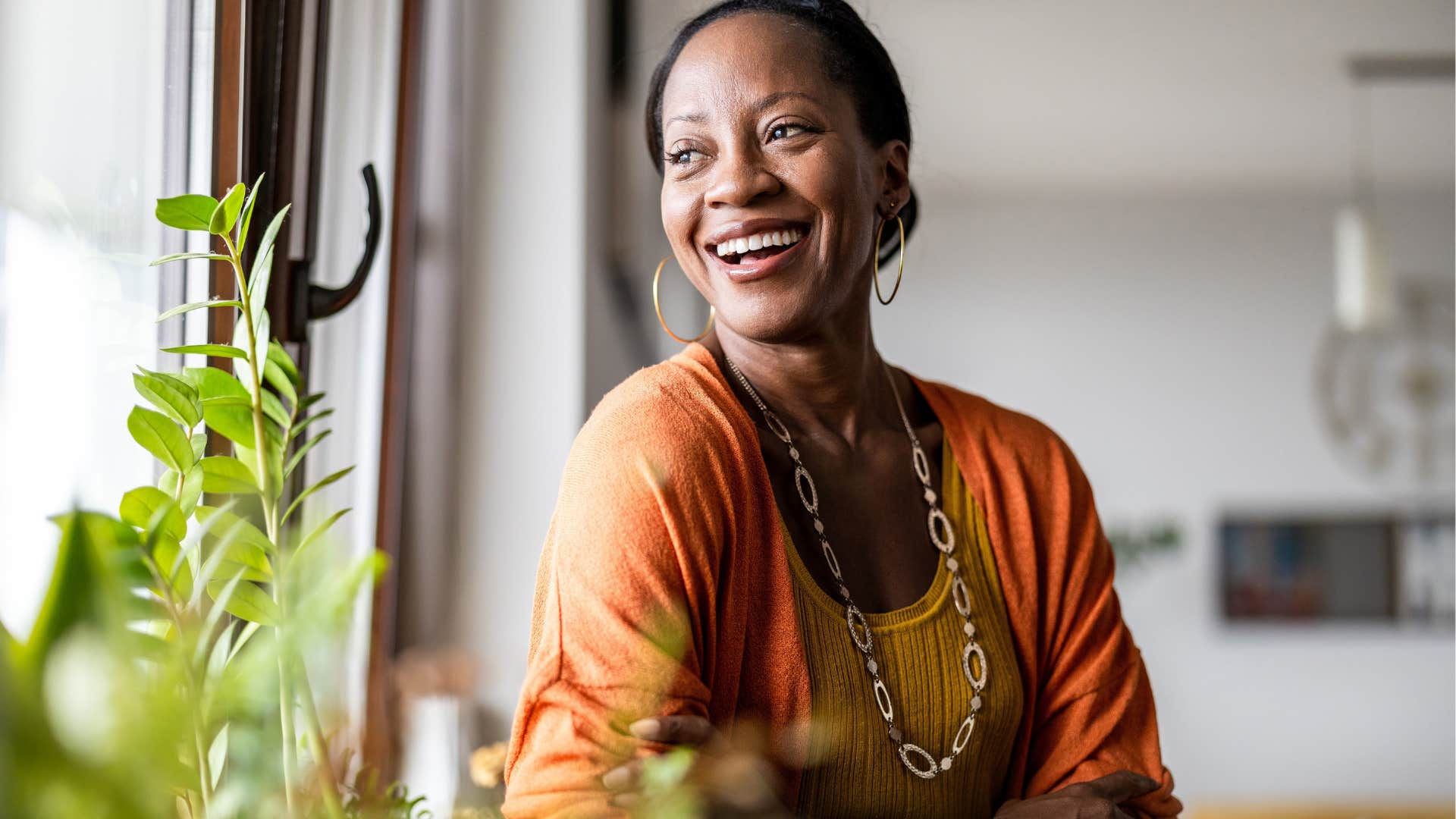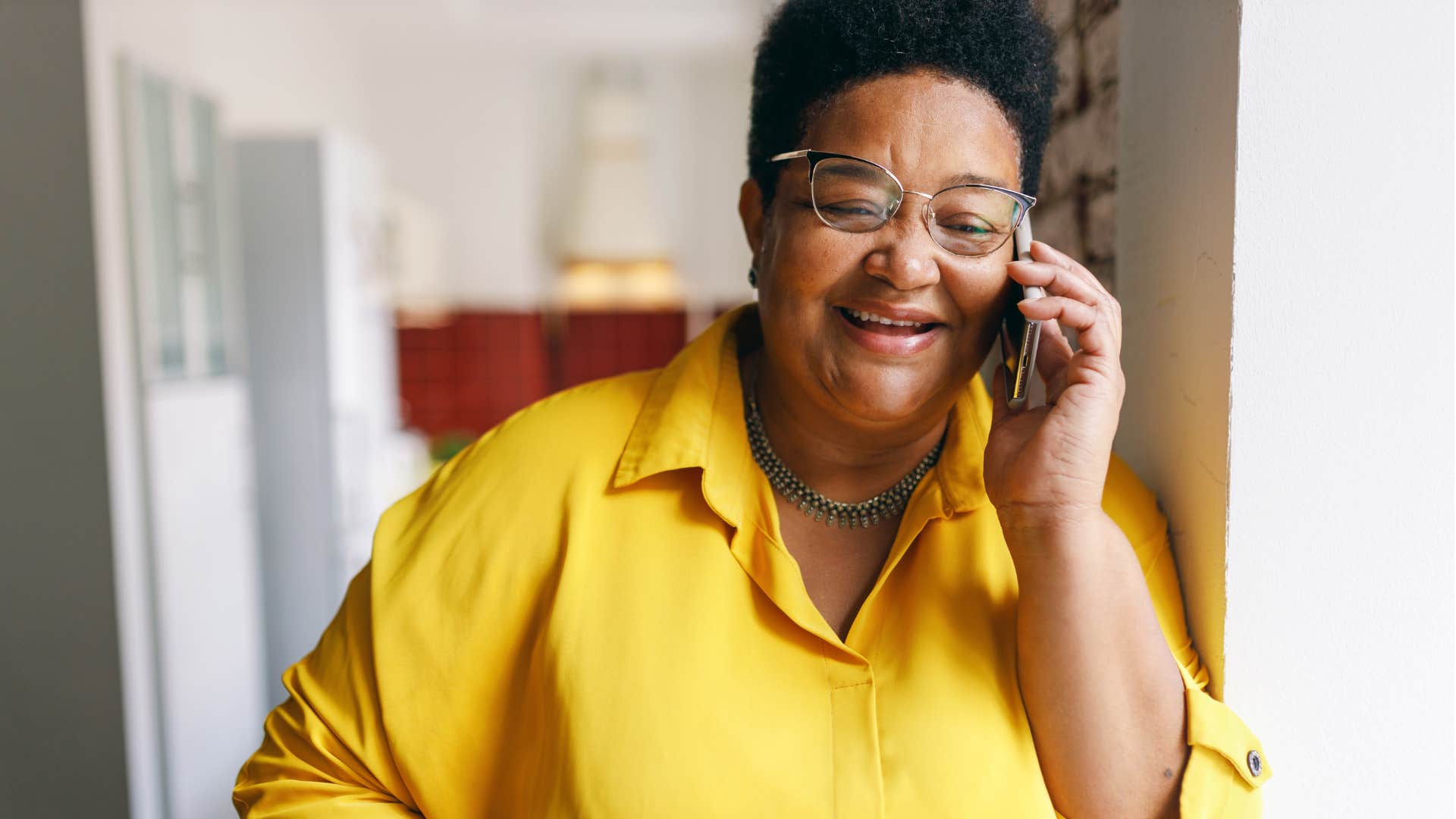11 Small Ways To Take Better Care Of Yourself That Have Nothing To Do With Diet And Exercise
Not everything that adds value to your life is hidden in the gym or a wellness diet plan.
 PeopleImages.com - Yuri A | Shutterstock
PeopleImages.com - Yuri A | Shutterstock Considering the wellness space is flooded with recommendations for living a healthier lifestyle that are hyper-focused on diet and exercise, it can be difficult for the average person to embrace a unique healthy routine that fits their schedule and needs without also adopting those suggestions. Of course, mindfulness often plays a role in these routines, but never to the extent that it's prioritized over workouts or a strict whole foods diet.
By considering the small ways to take better care of yourself that have nothing to do with diet and exercise, you can escape the stereotypes and stigma associated with popular culture ideas of health and wellness, and instead tailor your routine to benefit you emotionally, as well as physically. From being intentional about your communication to recognizing bad habits in yourself, you can work towards a more balanced being, starting on the inside.
Here are 11 small ways to take better care of yourself that have nothing to do with diet and exercise
1. Say what's on your mind
 PeopleImages.com - Yuri A | Shutterstock.com
PeopleImages.com - Yuri A | Shutterstock.com
When you let anxiety or fear keep you from expressing your emotions and speaking your mind, you're only sabotaging yourself, letting resentment grow and repressed emotions tear away at your emotional well-being.
According to clinical psychologist Bethany Juby, emotional repression can sometimes feel comforting, like a short-term solution, but over time, it only sparks more stress, anxiety, and emotional turmoil in our daily lives. Research from the International Journal of Psychotherapy Practice and Research also suggests this inability to speak your mind can negatively affect your physical health, decreasing your immune function.
If you need help channeling your inner voice or find it difficult to verbalize how you're feeling to others, consider introducing less intimidating modes of communication into your routine, whether it's recording yourself venting, journaling, or meditating with uncomfortable emotions.
2. Trust your gut
 PeopleImages.com - Yuri A | Shutterstock.com
PeopleImages.com - Yuri A | Shutterstock.com
Your intuition and gut is your "second brain," according to experts from the Harvard Business Review, as they often help us to make informed decisions, reflect on our experiences, and connect with others in fulfilling ways. When we trust our gut, we cultivate trust with ourselves, reassuring our body and mind that we're living with their best interests in mind.
It may be uncomfortable to consider the ways you've been breaching that trust with unhealthy habits and vices, but taking a moment to reconnect and consider what you need, how you're feeling, and what relationships are fulfilling can strengthen every aspect of your life.
While the stress and chaos of daily life may urge you to live on autopilot, find ways to connect with your intuition throughout your day. Even when we're not mentally ready to acknowledge an uncomfortable thought, relationship, or emotion, our bodies have funny ways of communicating with us about what we need to thrive.
3. Speak kindly about yourself
 pikselstock | Shutterstock.com
pikselstock | Shutterstock.com
Psychotherapist Amy Morin argues that negative self-talk doesn't just sabotage our relationships with ourselves and others, it encourages us to live in a distorted reality plagued by negativity, mistrust, and insecurity.
Committing to speaking kindly about yourself, whether you're alone or interacting with others, is one of the small ways to take better care of yourself that has nothing to do with diet and exercise, because you're fulfilling your emotional needs yourself, rather than seeking external validation or praise in others to do it for you.
Don't let your inner critic sabotage your relationships, heighten your stress and anxiety, or encourage you to live from a perfectionist mindset that hinders your growth. You deserve to be treated with grace, tenderness, and respect, even from yourself.
4. Love others openly and often
 PeopleImages.com - Yuri A | Shutterstock.com
PeopleImages.com - Yuri A | Shutterstock.com
While many of us are battling our own struggles with childhood trauma, attachment, and commitment, intentionally embracing a mindset like this can add joy, beauty, and connection to our lives in empowering ways. Find ways to express love to the people around you — kindness with a stranger, a smile to a co-worker, or an intentional conversation with a partner — to introduce more positivity into your life.
Experts from Harvard Health argue that this intentional embrace of empathy in our routines starts with ourselves, as we embrace small acts and habits that look out for our best interests. When we interact with others leading with compassion and kindness, like a study from the Journal of Social Psychology explains, we live happier, more fulfilling lives.
Don't underestimate the power of social connection and self-love. Everyone has the power to intentionally focus on introducing more love into their lives, even amid the feelings of chaos, isolation, and anxiety our routines can sometimes spark.
5. Say 'yes' more
 Ivanko80 | Shutterstock.com
Ivanko80 | Shutterstock.com
Falling into a routine can be helpful for motivating us to reach our goals. But when we fall into stagnancy — no longer growing or putting ourselves out of our comfort zones — we're not truly living, just surviving.
By saying "yes" more often in our relationships, to opportunities at work, and in embracing new hobbies, habits, and routines, we introduce a level of excitement into our lives that encourages personal growth and motivates us to simply wake up in the morning.
Don't be afraid of challenging yourself, making mistakes, or indulging a relationship that may not work out. All we have is the present moment. No matter how much planning or over-thinking you do, how you spend your days — even the smallest moments — is how you'll end up spending your life.
Say yes more; it could be one of the small ways to take better care of yourself that have nothing to do with diet and exercise.
6. Don't be afraid to say 'no'
 Mavo | Shutterstock.com
Mavo | Shutterstock.com
In that same vein, don't forget to re-assert your boundaries and find comfort in saying "no" when it's in your best interest. The people you're meant to keep in your life will understand when you need alone time or space to fill your own cup. Those who turn defensive may not have your best interests at heart or, at the very least, need intentional communication to find security in your relationship.
When we learn to say no more often, in situations where we need space, comfort, or communication, we learn to live more authentic lives, like Vanessa Patrick, professor and associate dean for research at the University of Houston's C. T. Bauer College of Business, suggests.
7. Craft a screen-less morning routine
 ViDI Studio | Shutterstock.com
ViDI Studio | Shutterstock.com
Wellness experts like Mel Robbins argue that our morning routine sets the stage for our entire day. When we hear our alarm, roll over, and immediately scroll on social media or respond to emails, we're not only sparking feelings of stress and anxiety by overloading our brains with information, we're sabotaging the potential for a better, more balanced emotional state when we finally leave bed.
Instead, find ways to rise in the morning without a screen. If that means plugging your phone in outside your bedroom or away from your bed, do it. Rise with your alarm, move your body, drink water, and adopt a hobby that allows you to connect with yourself, your mind, and your body.
You have the power to live a more balanced life, but it starts in small moments like your morning routine, that you have the power to craft in your best interest. Yes, this might mean waking up 5 or 10 minutes earlier than you typically would, but isn't a happier, healthier, more fulfilling day the perfect motivation to lose a few moments of sleep?
8. Adopt radical mindfulness
 Inside Creative House | Shutterstock.com
Inside Creative House | Shutterstock.com
While "mindfulness" might seem intimidating to someone new to the wellness space, it's much less anxiety-inducing in practice. While connecting with yourself looks different for everyone, there's certain practices like meditation, journaling, and intentional breathwork that can cultivate a sense of peace in your routine.
If you're resorting to a "fight or flight" state at work, battling anxious thoughts, parenting your kids, or feeling exhausted trying to focus on a project, take a few moments to separate yourself from the chaos. Close your eyes, give yourself a hug, and focus on the things you can control — your breath, your responses, your communication.
Be kind to yourself; life isn't easy. However, adopting some of these small ways to take better care of yourself that have nothing to do with diet and exercise can add value, fulfillment, and peace to your routine in ways that genuinely transform your general well-being.
9. Try a new hobby or activity
 Inside Creative House | Shutterstock.com
Inside Creative House | Shutterstock.com
Our alone time can be filled in a million different ways. Sometimes, it's crafted by our work schedule, parenting responsibilities, or household chores. However, we do have the power to intentionally carve out moments — even a few minutes — strictly for ourselves. What helps you to de-stress? Where do you feel most like yourself? What habits make you feel happier?
Oftentimes, channeling these desires, our innate sense of creativity, and a hobby that gets us out of the stagnancy of a typical routine can add excitement to our lives and improve our mood. Pick up a new hobby you've been wanting to try. Schedule a new class centered around community and movement. Start reading the book that's been collecting dust on your shelf.
Even in a relationship, intentionally planning dates that revolve around a new activity for both partners can promote a sense of closeness and connection, as a study published in the Journal of Social and Personal Relationships suggests, that can add value to your routine.
10. Call your friends
 shurkin_son | Shutterstock.com
shurkin_son | Shutterstock.com
When we're busy with work, our families, or intimate relationships, we often struggle to find time for genuine connection with our platonic friendships. Despite feeling better, more refreshed, and happier after hearing from them or spending time in their presence, we underestimate the power of friendship in our daily routines.
Like journalist Jancee Dunn explains in her New York Times article, even an 8-minute phone call has the power to genuinely improve your mood, even when you're battling uncomfortable emotions or conflict in your life.
Call someone you miss or haven't spoken to in awhile. Call your mom, your best friend, your siblings. Spread love, communicate honestly, and remember: even 8 minutes of communication can help comfort your qualms and promote a happier mood.
11. Listen to music more often
 Miljan Zivkovic | Shutterstock.com
Miljan Zivkovic | Shutterstock.com
Like experts from the American Psychiatric Association suggest, music can have a profound impact on our general emotional well-being, along with other interpersonal benefits like social connectedness and community.
Music therapy — even on an individual level with your favorite playlists — can help you to de-stress in your daily routine, along with encouraging more positive nostalgic and peaceful moments. By listening to music you connect with on an emotional level, you can craft feelings of belonging, letting lyrics help you feel understood, even subconsciously with emotions and trauma you haven't directly healed from.
Zayda Slabbekoorn is a staff writer with a bachelor's degree in social relations & policy and gender studies who focuses on psychology, relationships, self-help, and human interest stories.

